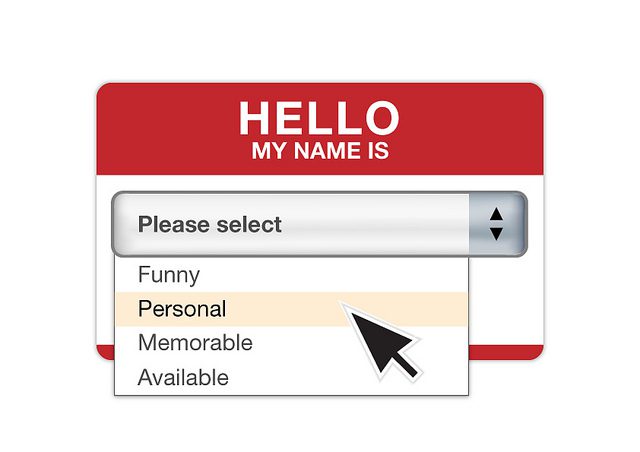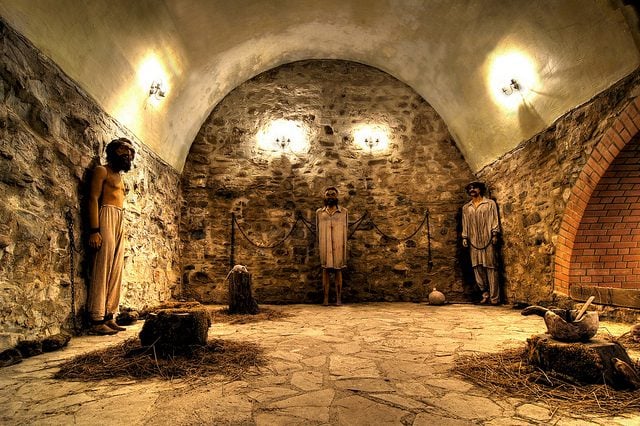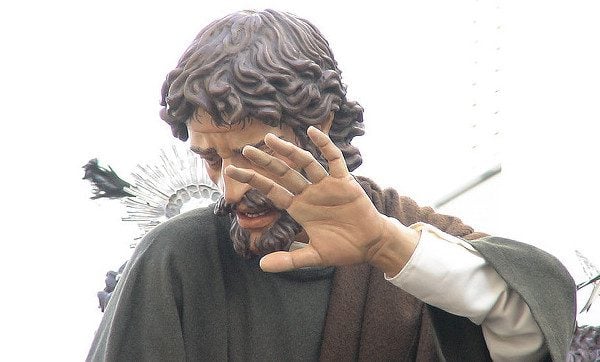
Back in 2013, a judge blocked a mother’s name for a child on religious grounds. She wouldn’t allow the mother to name her child ‘Messiah,’ because the judge felt it was a name reserved only for Jesus. It was probably the oddest judicial ruling I’d ever heard.
It was almost as if the judge believed that names themselves had some sort of special religious or spiritual power.
I, for one, am thankful a name is just a name. Otherwise, every time I got angry, I’d turn into a massive green monster who smashes everything in sight. See, I wasn’t named for the biblical David — the musician and songwriter, the shepherd and warrior, the king and the man after God’s own heart.
Not even close.
Rather, I was named for Dr. David Banner, the man who turned into the Incredible Hulk on the 1980s television series. In case you’re wondering, it was my three-year-old brother who chose the name, not my parents. But, I’m told, I should be thankful for my parents’ gentle guidance of him. Otherwise, I would have been named Bo David, after not only the Incredible Hulk, but also after Bo Duke from the Dukes of Hazzard.
Now, if I were to have wound up with both of my brother’s preferred names for me, and particularly if they wound up hyphenated, I likely would have a legitimate complaint against my family. But honestly, I think my older brother really did hope his younger brother would wind up to be a legendary superhero or a wild Southern outlaw with a cool car.
I mean, what kid wouldn’t want that?
But soon he soon learned, I’m sure, that names don’t really have the kind of power to fulfill our hopes. My brother was probably disappointed to find his brother he had such high hopes for was really just a typical little brother whose only superpower was annoying him.
But, truth be told we all name things after our hopes, no matter if we are three or 30.
As parents, we too tend to name our children in just this way. We name them after beloved family members, hoping they will carry on some quality in them we cherished, that they will continue some of the traditions of family. At the very least, we think, their names will be a small way to join hands with both our history and our future. We name them after favorite characters in books and movies, after saints and visionaries, after presidents and warriors. With theirnames, we embroider their birth and their first moments of life with our hopes and dreams for them. It is one of the most shared experiences of human life, the naming of a child.
Though as parents we often agonize and debate over just the perfect name with just the right cadence and meaning, it is a small, insignificant moment to everyone except the people doing the naming at that moment. I remember the dissonance of making Brendan’s name official. It was jarring, after the sheer awe of childbirth and those first few moments of life, to reduce the messy, chaotic, and beautiful experience to an orderly Social Security form where I penciled into confining little boxes the 12 letters of his name.
But it is the most human thing I can think of. Having a name and being named. Having a grouping of letters put together lovingly just for you, a smattering our of consonants and vowels stitched together by parental love and hope. A name by which the ones you love the most will reassure you that the scrape of a knee, or the loss of a first love, as much as it hurts, will not be the end of the world. Aname your parents will breathe in exasperation, when for the umpteenth time, you forgot to finish your chores, or put your wallet in your pocket, or bring your lunch box home, or pick up the milk at the store so there’s enough for coffee and cereal in the morning. The name your parents, and maybe even one day a lover, will whisper as they ponder in their hearts what this odd happening or that unfortunate event will mean for your future.
It is such an ordinary, human thing to be named.
It is so unlike the cagey, dramatic responses of God, who when an awestruck Moses asks for the divine name from the burning bush only get the infuriatingly cryptic I AM WHO I AM as an answer. It’s so unlike the sarcastic and ironic response of God to Moses on Mt. Sinai to see God’s face. But instead of the divine face, God condescends to show Moses his divine rear end. It’s so unlike God’s aloof reply to a broken and lame Jacob after their midnight wrestling match. When Jacob pleads with to know the divine name of the being he fought, God not only brushes aside the request, but God also decides it’d be better to simply rename Jacob something else entirely.
God had always been the one who had refused to be named, whose name was not even spoken, but was instead known by the letters YHWH.
And yet, here is God Incarnate, the Divine Mystery, not only being gestated and born to two unimportant teenagers, but also being named by them in the most common of ways. 8 days after birth at his circumcision. Just like everyone else in the Jewish world.
So here we have the Eternal Word made flesh, God who came down from heaven to become Incarnate from Mary for us and for our salvation, being given a completely common name, in a completely common way, a Jewish ritual of circumcision and naming.
And that, to me, is why we celebrate the naming of Jesus today. Because it is just so ordinary. So common. So human. To be named. It is something we can all identify with and connect to. Even the name itself — Jesus — was ordinary for the time. The name of Jesus is one of those moments where, maybe, if we look hard enough, we can see the divine story connecting with our own, and maybe, we can even begin to see the divine, holy name of Jesus as a part of our own naming.
It is a reminder that between that between the wonder of birth, the tragedy of crucifixion, and the triumph of resurrection, there were three decades of every day life, and that those three barely acknowledged decades as a common carpenter’s son in a backwater town in Judea were just as important a part of the Incarnation as the miraculous events in Bethlehem and Jerusalem that we normally associate with the Son of God.
Sometimes we forget that the Incarnation of God — Jesus — didn’t come just to be born, just to be crucified, and just to be resurrected. He came to live. He came incarnate the love of God for us, not just with his death but with his life, not just with nails but in the meals he shared with the forgotten and disenfranchised. Not just with his cross, but with his hunger, his laughter, his sadness, his grumpiness, his good days and his bad days. He came to save us not just with the whiz-bang moments that have inspired artists for 2,000 years, but also with the mundane, day-to-day moments of his life, like being given a name by two parents.
The eternal Word, the Son of God in whom we live and move and have our being, is named by two teenagers with barely a penny to their names.
And as Galatians reminds us, we are heirs to this holy name, inheritors of Jesus’ legacy. We are the bearers of this Holy Name in the world today. In so many ways, however, we’ve often squandered his good named and left the name Jesus with quite the checkered legacy. Only the briefest look at history shows how we’ve twisted this holy name into something unholy and horrible.
So today, on the Feast of the Holy Name, may we hear again the call to go into the world, bearing the Holy Name of Jesus and creating something extraordinary in the same way Jesus himself did. Not by invoking the name of Jesus as if it had some sort of magical power, but by the way we live. Not by being perfect Christians who never make mistakes, but by the way we love.











